What is Testosterone?
Testosterone has been in the news lately. There is talk of a “testosterone crisis” caused by the continued drop in testosterone levels of males, resulting in a condition called Hypogonadism (low 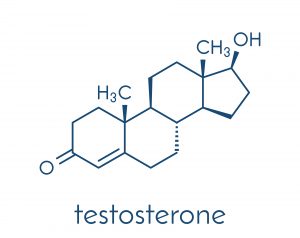 testosterone in men, aka “Low-T”).
testosterone in men, aka “Low-T”).
Studies have found that men today have less testosterone than men in the past. For example, one study found that a 65-year-old American man in 1987 had an average almost 17% higher testosterone level than a man the same age in 2004.
This was an American study, but similar studies in other countries have found the same results: testosterone is in a downfall.
Is this loss of testosterone a problem?
Testosterone has become a hot debate topic. Some maintain that while testosterone levels are dropping, it is nothing to be concerned about. With fewer men working in labor-intensive occupations, and no wars to fight, many see lower testosterone as a plus.
The definition of something called “Toxic masculinity” has ballooned in recent years to encompass male behavior and traits that seemed normal only a few short years ago. The “lower testosterone is  a good thing” crowd points to less toxic masculinity to prove their point.
a good thing” crowd points to less toxic masculinity to prove their point.
However, that is a minority opinion. Testosterone is the “manly hormone” that makes men MEN! Testosterone enabled men to storm the beaches at Normandy and countless islands in the Pacific Ocean during WWII, erect skyscrapers, create massive international corporations, explore previously unexplored regions, and, perhaps most importantly, boost men’s health.
Before we go any further, let’s answer the question of testosterone: a hormone secreted by the testicles and adrenal glands in men and the ovaries in women (yes, women have testosterone as well as men, just in smaller amounts).
Testosterone gives males masculine characteristics: large muscles and bones, a deep voice, reproductive organs, sperm production, and body and facial hair.
Testosterone levels begin to rise in teenage boys and peak around age 30. From then on, the average man loses testosterone at a rate of approximately 10% per decade, depending on several factors.
Doctors measure testosterone levels in nanograms (ng) per decilitre (dL). Normal levels of testosterone are age-dependent. Here is a chart of average levels of testosterone in men:
Age
Average levels
7–10 years
1.80–5.68 ng/dL
14–17 years
208.08–496.58 ng/dL
adult males
300–1,000 ng/dL
older males
500–800 ng/dL
What causes the loss of testosterone in men?
There are several possible causes of the disappearance of testosterone in men. Aging is high on the list, but injury, disease, obesity, a sedentary lifestyle, poor nutrition, smoking, toxic chemicals in food, chemotherapy, air and water pollution, and problems with the testicles, the pituitary gland, and the hypothalamus gland malfunctioning all contribute to testosterone vanishing.
What are the results of men with Low-T?
Nothing pretty. Fatigue, shrinking muscles, lower endurance, stiffness throughout the body, more injury-prone, mental fog and confusion, depression, a plummeting libido, erectile dysfunction, insomnia, dry, wrinkled skin, increasing joint aches and pains, and an all-around loss of the zest for life.
But you don’t have to suffer from these symptoms of Low-T.
That’s right. You are not helpless. Testosterone Replacement Therapy (TRT), when applied correctly under medical supervision, works wonders by pumping new life into tired, old bodies.
If you are experiencing the symptoms of low testosterone, contact us.
We will begin addressing your condition by looking at the results of a total serum testosterone 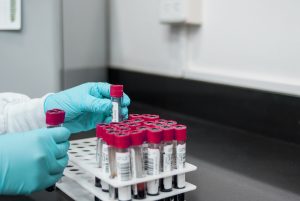 blood test taken in the morning. If the results show that you are suffering from Low-T, we might also want to check your other hormone levels. We may also need a brain MRI to determine if there is an issue with your pituitary gland that may be causing your testosterone to run dry.
blood test taken in the morning. If the results show that you are suffering from Low-T, we might also want to check your other hormone levels. We may also need a brain MRI to determine if there is an issue with your pituitary gland that may be causing your testosterone to run dry.
Once we have that information, we will create a TRT program to restore your testosterone to a more youthful level. We will give you detailed guidance every step of the way. The good news is that you can receive our testosterone therapy in the privacy of your living room!
We don’t stop with TRT.
In addition to TRT, we will make recommendations to ensure you are on a pathway to a healthy, longevity-promoting lifestyle. We are a holistic clinic, which means that we realize that a good foundation of health is the right environment to maximize testosterone replacement.
As a house is only as solid as its foundation, a body is only as healthy as its daily habits. We emphasize proper nutrition, deep, restorative sleep, physical fitness, the often overlooked importance of staying hydrated, nutritional supplements, the crucial topic of stress control, and reducing your exposure to toxins.
We have the total program. Contact us for a FREE, no-obligation discussion concerning the remarkable, life-changing benefits of Testosterone Replacement Therapy (TRT)!

- The Most Common Symptoms of Low Testosterone in Both Old and Young Men [Last Updated On: July 29th, 2024] [Originally Added On: January 23rd, 2021]
- The Results Are In: The Effects of TRT on Men with Prostate Cancer [Last Updated On: January 5th, 2025] [Originally Added On: February 25th, 2021]
- Treating Low Testosterone with Hormone Therapy (TRT): The Fundamentals [Last Updated On: August 5th, 2024] [Originally Added On: April 15th, 2021]
- The Relationship Between Erections and the Estrogen/Testosterone Ratio [Last Updated On: November 24th, 2024] [Originally Added On: April 15th, 2021]
- Testosterone Levels Main Determining Factor Behind Fracture Risk in Older Men [Last Updated On: September 18th, 2024] [Originally Added On: April 23rd, 2021]
- Simple Lifestyle Changes to Boost and Naturally Increase Your Testosterone Levels [Last Updated On: August 4th, 2024] [Originally Added On: May 9th, 2021]
- If You Suffer From Low-T, You’re More at Risk for Severe COVID-19 Symptoms [Last Updated On: November 24th, 2024] [Originally Added On: May 30th, 2021]
- Is Male Menopause a Real Thing? Yes, Actually [Last Updated On: November 24th, 2024] [Originally Added On: June 6th, 2021]
- Testosterone Therapy May Have Positive Effects on Non-Alcoholic Fatty Liver Disease [Last Updated On: November 24th, 2024] [Originally Added On: June 30th, 2021]
- Focus on These Five Workouts to Naturally Boost Both HGH and Testosterone [Last Updated On: October 2nd, 2024] [Originally Added On: March 16th, 2022]
- Does Every Man Experience Erectile Dysfunction as He Gets Older? [Last Updated On: October 6th, 2024] [Originally Added On: March 25th, 2022]
- The Pros and Cons of Taking DHEA Supplements for Men [Last Updated On: October 7th, 2024] [Originally Added On: April 7th, 2022]
- Avoid These Foods That Reduce Testosterone [Last Updated On: October 12th, 2024] [Originally Added On: June 28th, 2022]
- Tlando: The Super Easy TRT Alternative to Xyosted for Testosterone Deficiency [Last Updated On: October 14th, 2024] [Originally Added On: July 11th, 2022]
- Reasons Why Cialis May Be a Better Option Than Viagra to Treat ED [Last Updated On: October 13th, 2024] [Originally Added On: July 22nd, 2022]
- Testosterone and Estrogen Imbalance May Impair Shoulder Joint Health [Last Updated On: July 21st, 2024] [Originally Added On: August 16th, 2022]
- Can You Suddenly Stop Testosterone Replacement Therapy (TRT)? [Last Updated On: October 21st, 2024] [Originally Added On: October 7th, 2022]
- You'd Never Suspect That Your Problems are Caused by Low-T! [Last Updated On: October 11th, 2024] [Originally Added On: March 9th, 2024]
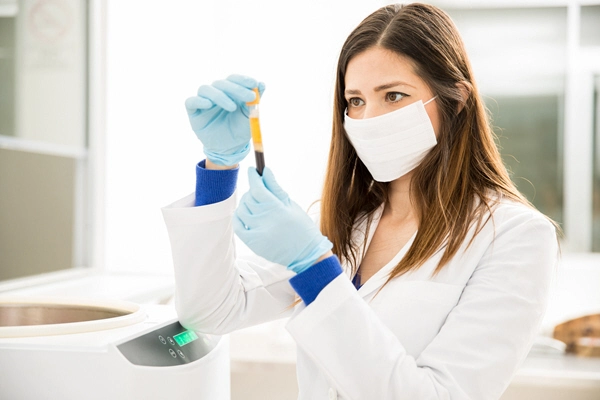
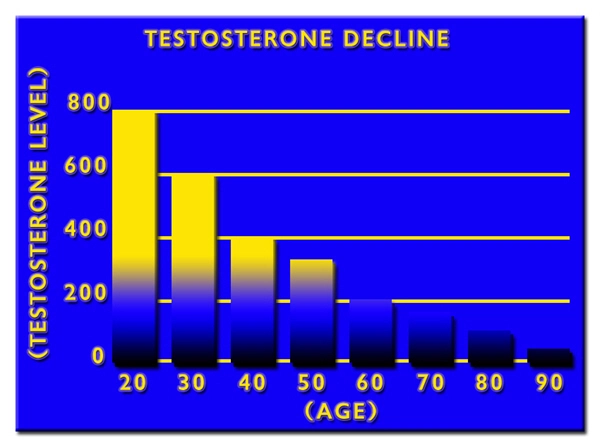
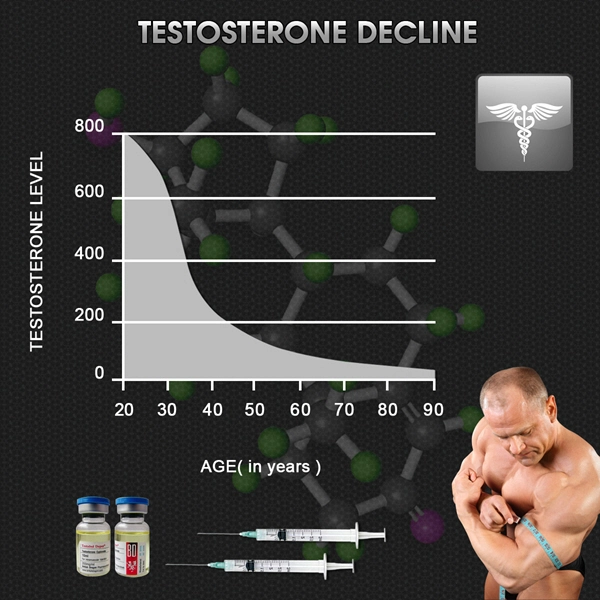
List of USA state clinics - click a flag below for blood testing clinics.
Word Count: 784



















































